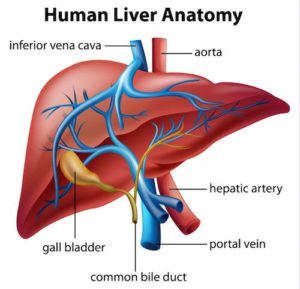 Editor’s Note: For many PRP patients and caregivers, the importance of “Liver Numbers” cannot be overstated. The following information was harvested from three credible websites. Please feel free to add your experiences and insights on this topic. Use “Leave a Reply” at the end of this webpage.
Editor’s Note: For many PRP patients and caregivers, the importance of “Liver Numbers” cannot be overstated. The following information was harvested from three credible websites. Please feel free to add your experiences and insights on this topic. Use “Leave a Reply” at the end of this webpage.
From MedicineNet.com
AST (SGOT) and ALT (SGPT) are reasonably sensitive indicators of liver damage or injury from different types of diseases or conditions, and collectively they are termed liver tests or liver blood tests. However, it must be emphasized that higher-than-normal levels of these liver enzymes should not be automatically equated with liver disease. They may mean liver problems or they may not. For example, elevations of these enzymes can occur with muscle damage. The interpretation of elevated AST and ALT results depends upon the entire clinical evaluation of an individual, and so it is best done by physicians experienced in evaluating liver disease and muscle disease.
Do AST and ALT test results indicate liver function?
It is important to clarify that ALT and AST levels do not reflect the function of the liver, even though in the medical community and in medical publications they commonly, and incorrectly, are referred to as liver function tests. Even in conditions when AST and ALT are very elevated, the liver still may function properly. Consequently, if you have “…elevated liver enzymes” or a high or abnormal liver test, you need to ask your physician exactly what all of the tests indicate
See Source: http://www.medicinenet.com/liver_blood_tests/page4.htm
From eMedicineHealth.com
Normal Levels of AST and ALT
Normal levels of AST and ALT may slightly vary depending on the individual laboratory’s reference values. Typically the range for normal AST is reported between 10 to 40 units per liter and ALT between 7 to 56 units per liter.
Mild elevations are generally considered to be 2-3 times higher than the normal range. In some conditions, these enzymes can be severely elevated, in the 1000s range.
Elevated Levels of AST and ALT
Elevated levels of liver enzymes in general signify some form of liver (or hepatic) damage or injury. These levels may be elevated acutely (short term) indicating sudden injury to the liver, or they may be elevated chronically (long term) suggesting ongoing liver injury.
In addition to the duration, the level of abnormal elevation of the aminotransferases is also significant. In some conditions the elevation could be mild, consistent with a mild injury or inflammation of the liver. They can also be severely elevated, possibly up to 10 to 20 times the normal values, suggesting more significant damage to the liver.
Source: http://www.emedicinehealth.com/liver_blood_tests/page2_em.htm
From the Mayo Clinic
Many diseases and conditions can contribute to elevated liver enzymes. Your doctor determines the specific cause of your elevated liver enzymes by reviewing your medications, your signs and symptoms and, in some cases, other tests and procedures.
More common causes of elevated liver enzymes include:
❏½ Certain prescription medications, including statin drugs used to control cholesterol
❏½ Drinking alcohol
❏½ Over-the-counter pain medications, particularly acetaminophen (Tylenol, others)
Source: http://www.mayoclinic.org/symptoms/elevated-liver-enzymes/basics/causes/sym-20050830
